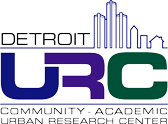CBPR Partnership Academy - Frequently Asked Questions
![]() Q: If I have a long-distance partnership are we eligible to apply to the CBPR Partnership Academy?
Q: If I have a long-distance partnership are we eligible to apply to the CBPR Partnership Academy?
A: Yes. However, since the program is geared toward developing long-term partnerships, both partners (particularly the partner that would be traveling furthest to reach the community) would need to speak to the long-term commitment of the partners involved and their strategies for carrying out their work together.
Q: If my research training isn't in the behavioral and social sciences, but I have been moving into a new research frame of CBPR and mixed methods - am I eligible? Are epidemiologists eligible?
A: Yes. While this program does not support clinical or bench research, it does support researchers with clinical or bioscience backgrounds who are proposing to use a CBPR approach that includes social and behavioral sciences. Epidemiology includes elements of clinical, biological, and social and behavioral sciences, and is eligible.
Q: I am part of a national effort to promote community-academic partnerships around the country. How might I take advantage of this opportunity?
A: This program aims to foster partnerships at the local level so it would be most appropriate and appreciated for you to share information about this opportunity with community and academic networks with whom you are currently working and encourage teams of local community-academic partners to submit an application.
Q: Do we need to have a specific plan in the application for what we will work on together?
A: No. The objective of this program is to foster new and early stage partnerships, so depending on where you and your partner are in developing your relationship, you may or may not have a plan for a specific CBPR study in mind. The objective of applying could be partnership formation and/or project development with the intent to develop the goal of your partnership over the year-long program.
Q: Will the CBPR Partnership Academy be offered next year?
A: Yes, there will be a total of three cohorts, so there will be one more opportunities to participate in the CBPR Partnership Academy after this year.
Q: Our health department currently works with a professor at our local university and conducts research in our community. We've recently formed a partnership - would we be good fit for the program?
A: The year-long program is aimed at teams of community and academic partners who are new to CBPR and who are in the early stages of forming a CBPR partnership. If a CBPR approach is new to your partnership, it would make you a good fit for our program.
Q: Can there be two academic partners from two different institutions and one community partner?
A: Yes, your partnership may include more than two team members (i.e., there may be multiple academic and community partners involved in your partnership itself). However, the program only supports one academic and one community partner to attend the week-long intensive course. Additional partners may attend the course at their own expense. The estimated cost includes tuition and materials for the course – approximately $600, plus travel to and from the course, 5 nights of lodging, and food expenses. If your team is selected and you have additional partners interested in attending the course, we would work with the group to enable other partners to participate, as space allows. In addition, if there are other members of the partnership interested in the year-long, on-going learning and mentoring activities, we would work with the group to engage additional partners, as feasible.
Q: What topics will be covered in the webinar and mentoring opportunities?
A: Topics will be driven in part by the learning needs and interests of the cohort that are expressed during the week-long course, and in part by the topics identified by the instructor team. Some examples of training topics may include the following, specifically in the context of CBPR: in-depth innovations in mixed methods and research design, analysis and display of spatial data, innovations in translation and dissemination of research.
Q: Is it required that program participants apply for the seed funding offered through the program?
A: No, it is not required, however the seed funding is a small ($1,000) non-competitive grant offered to each participating team to foster working together.
Q: Do teams need to have a mentor in place in order to apply for this program?
A: No, each team will be assigned a mentor from among the Partnership Academy community and academic instructors who will work with the team as needed throughout the duration of the year-long program.
Q: We have a specific grant with specific goals and objectives, and we would like to use a CBPR approach in meeting the objectives of the grant. How could we frame our interest in attending the program, given that there is already a potential research agenda that partners would be working on together?
A: As long as both partners see the partnership as beneficial, it is not critical that the decision to collaborate is made before the research agenda is developed. It would be important to speak to the partnership's commitment to shared ownership, resources, and decision-making regarding the project identified.
Q: Can the academic partner be a doctoral candidate who is currently working full time within an academic research program?
A: The eligibility criteria state that the academic partners must be research faculty at an academic institution., however if a doctoral candidate can demonstrate that they are committed to building a long-term partnership with an identified community partner, then doctoral candidates will be considered on a case-by-case basis for acceptance into the program.
Q: What defines a community partner?
A: The eligibility criteria state that the community partners must be in a mid-to-upper level position in a community-based organization imbedded within the community of interest and must have 3-5 years of relevant work experience in the community of interest.



